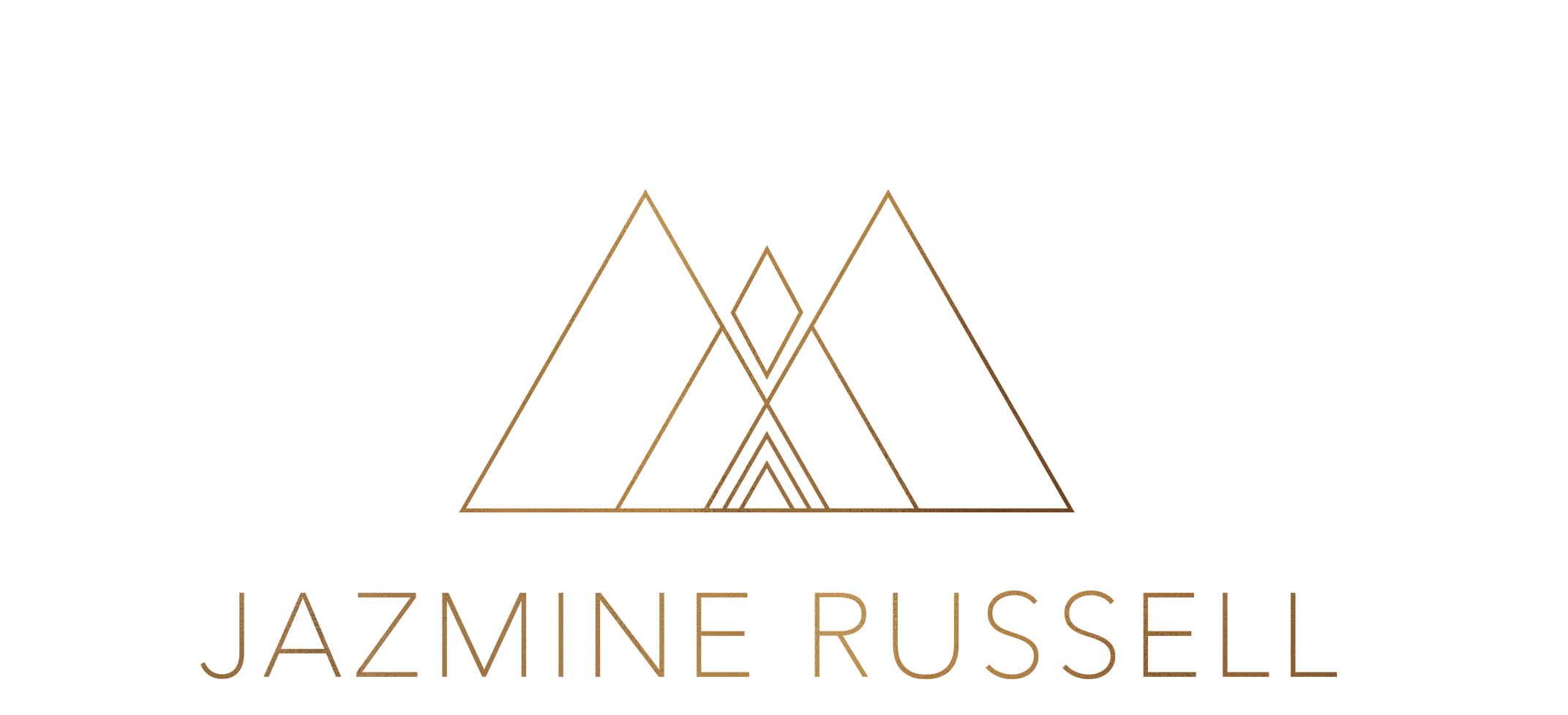Truth as Morality – Reality in Constant Motion
Mohamed is 18 years old and attends New York University College of Arts and Sciences. He is a film critic and mechanic. He loves collecting records, film cameras, receipts, and old car parts, swimming, and watching movies. He identifies with Egyptian and Italian cultures.
“I'm in love with meeting new people. My life is constantly in motion and I'm perfectly fine with that. I don't need to worry about what happens next because I'm busy making the most of present moments."
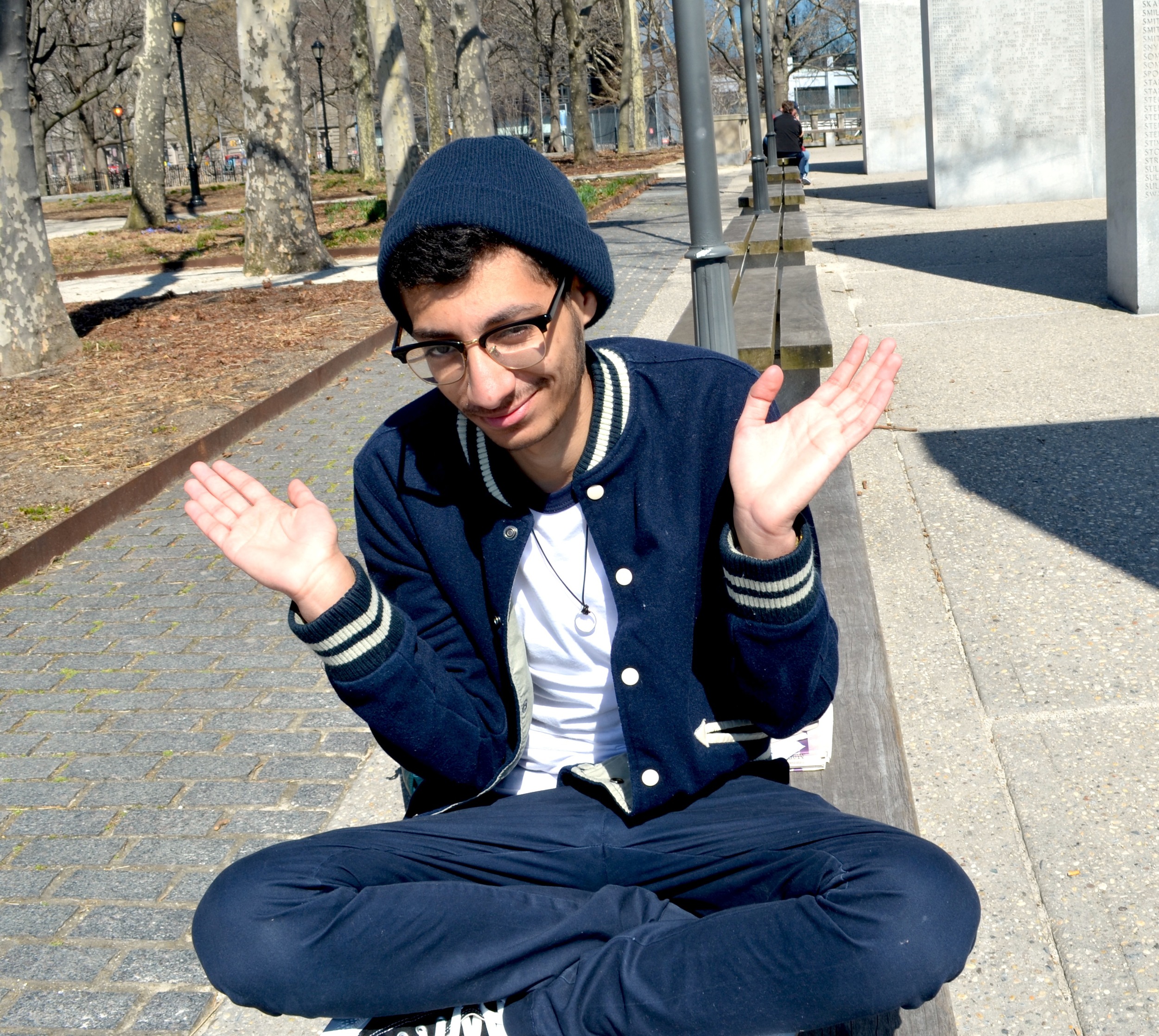
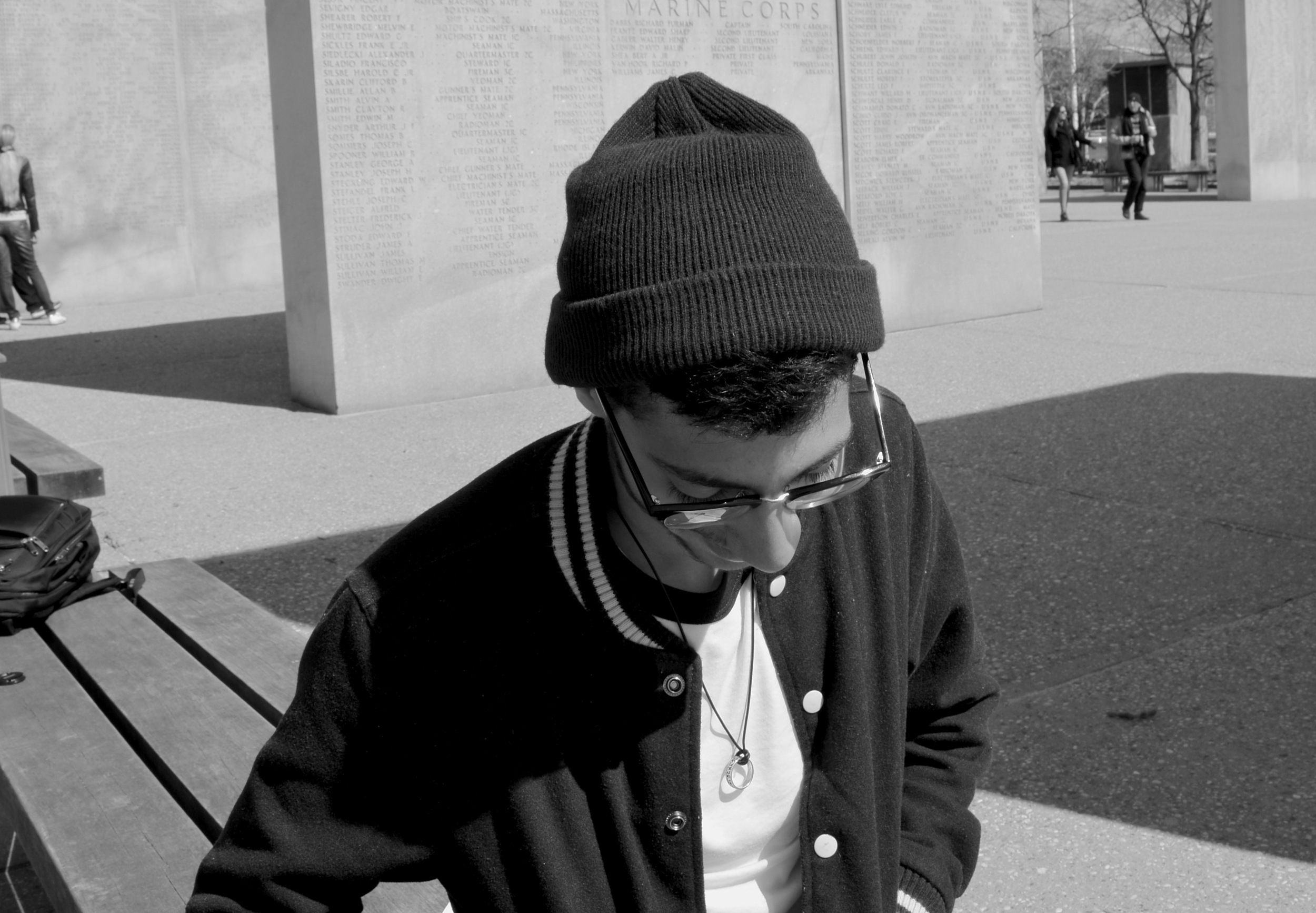
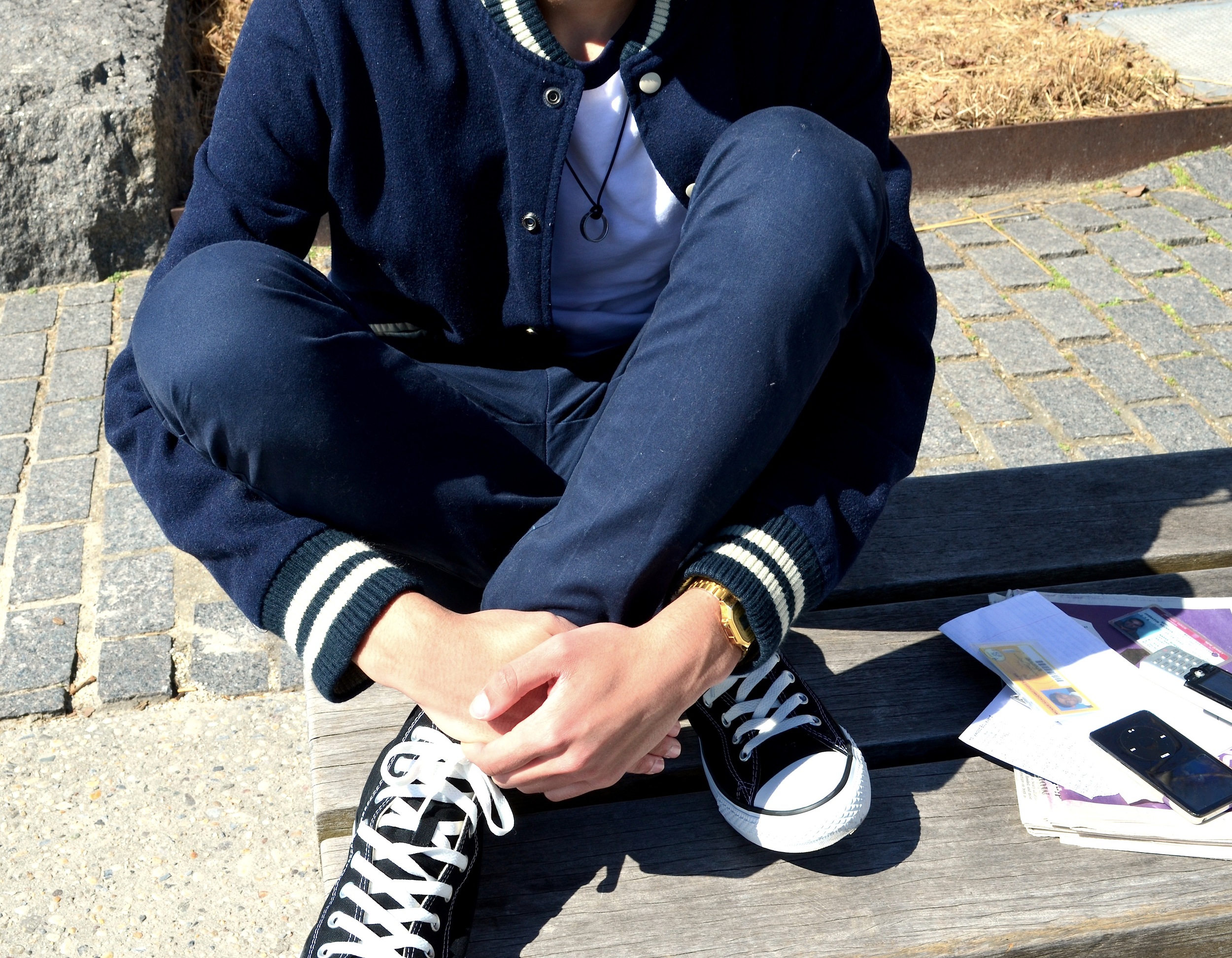
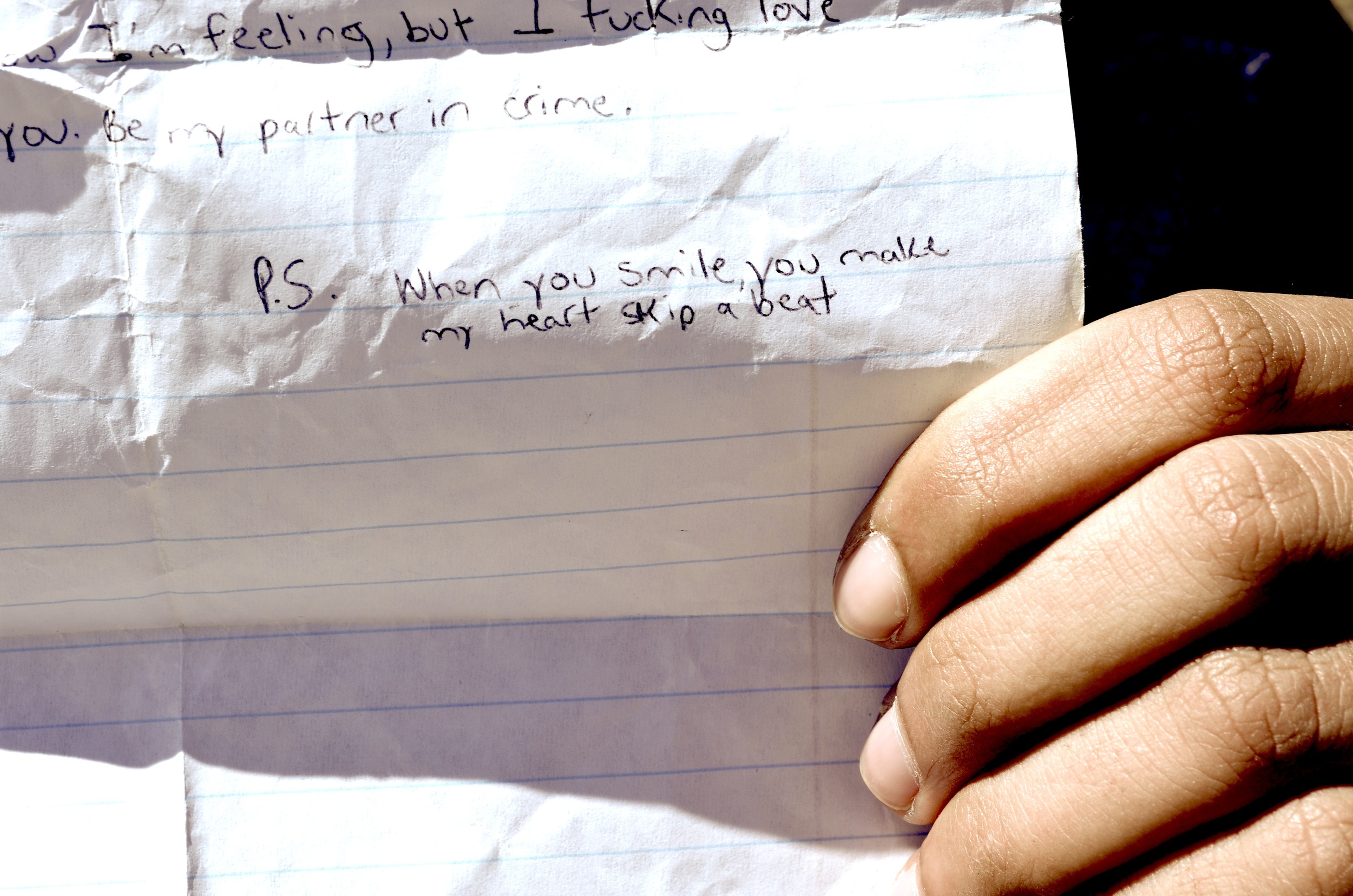
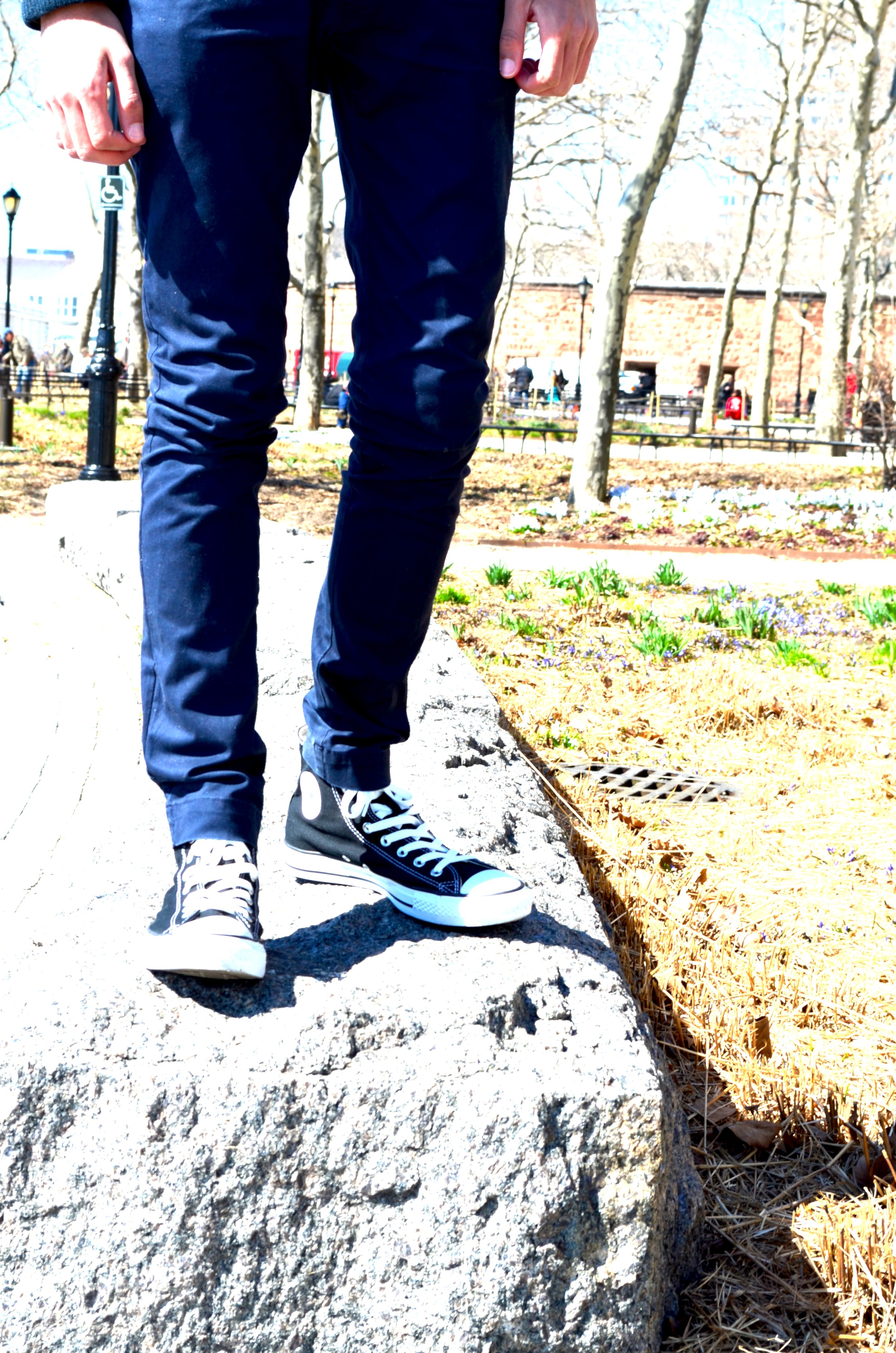
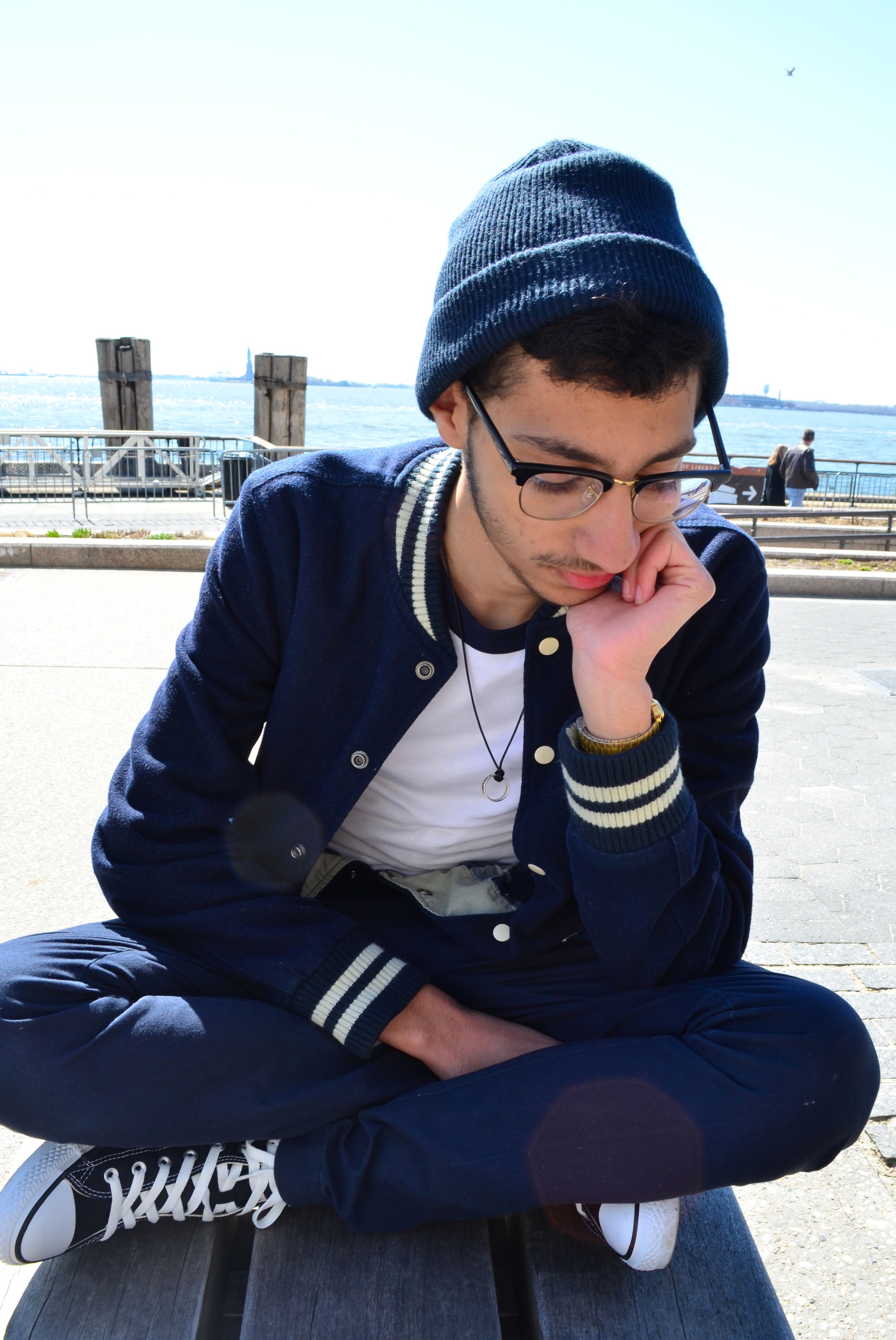
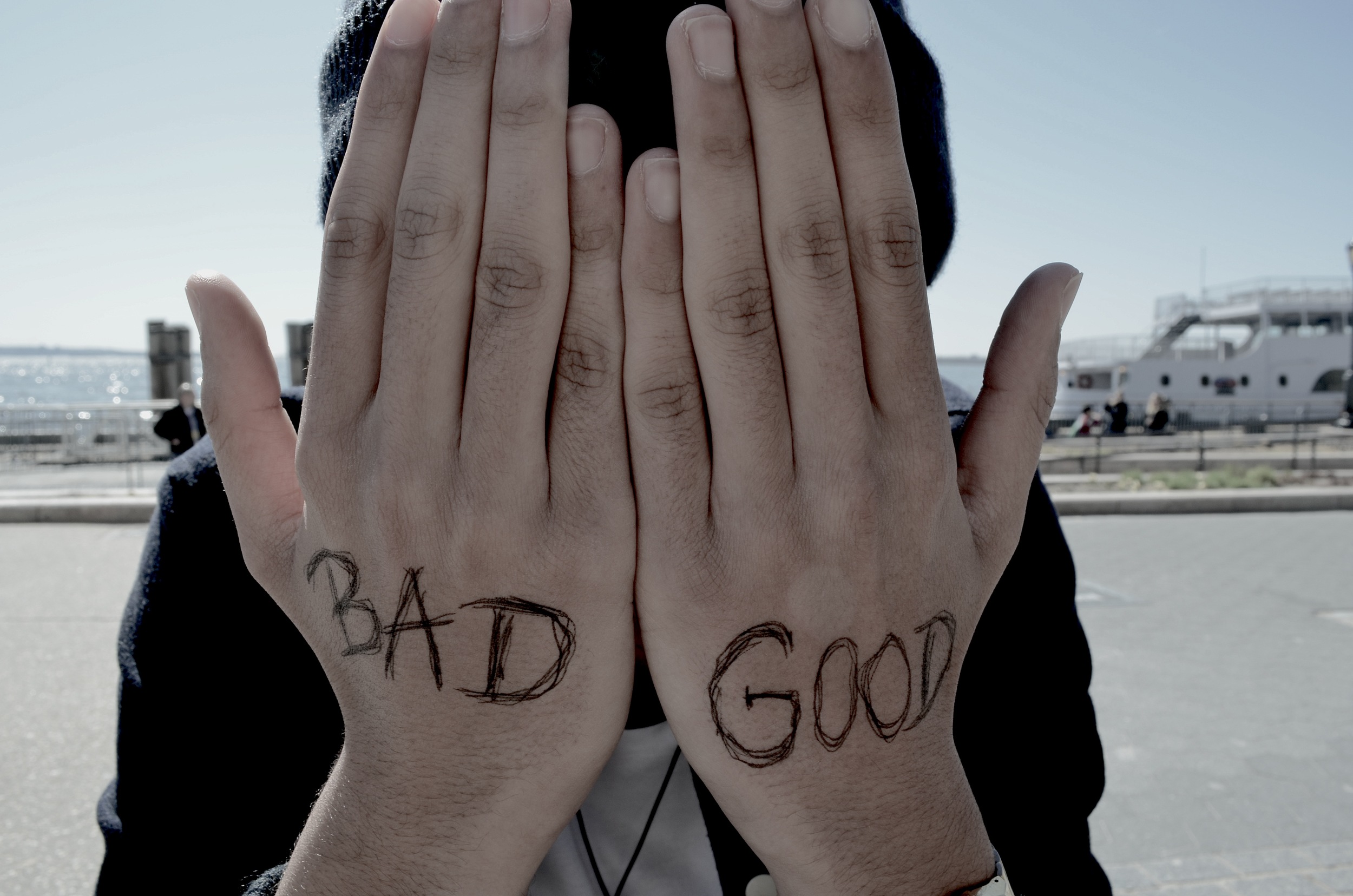
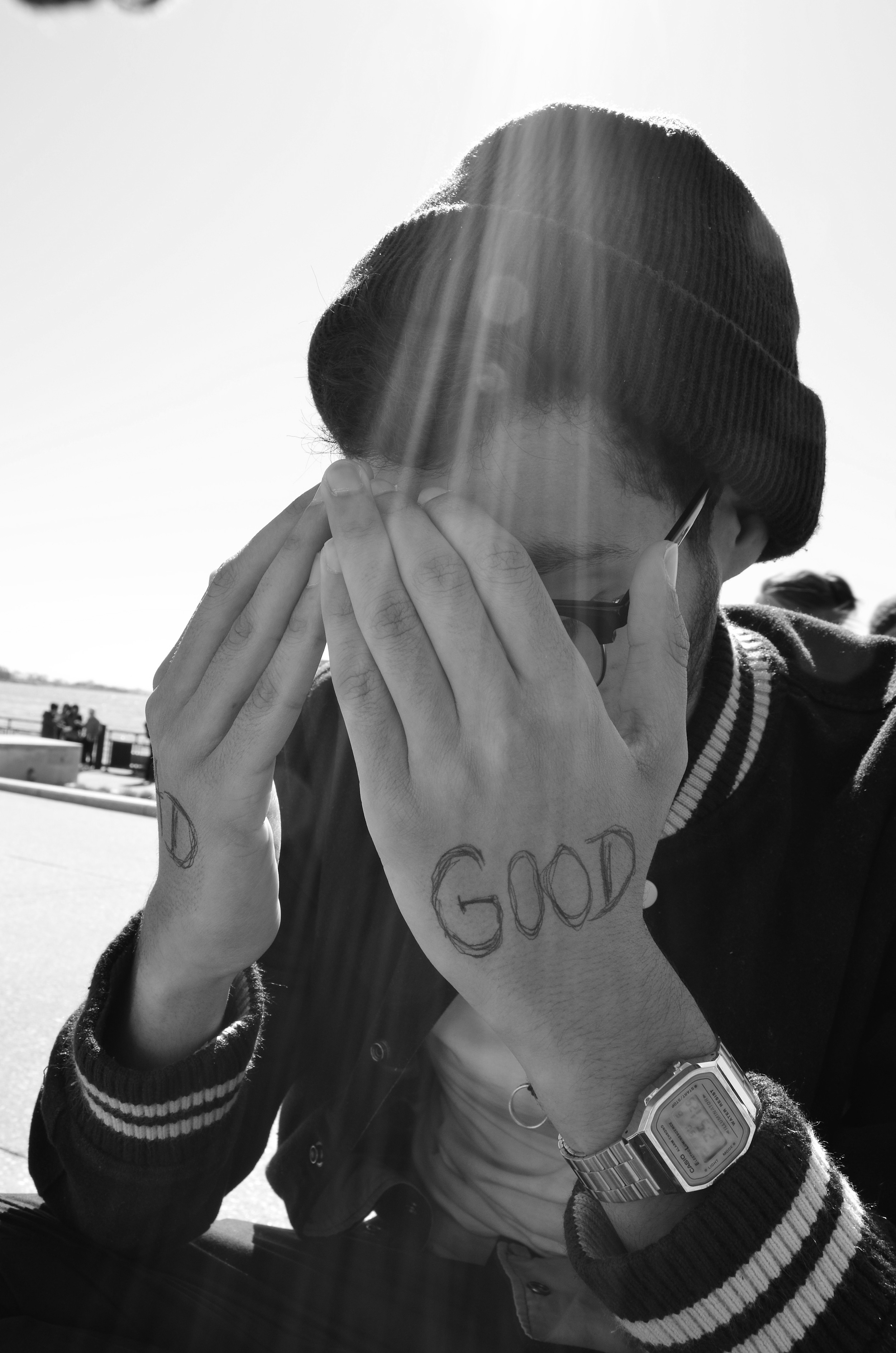
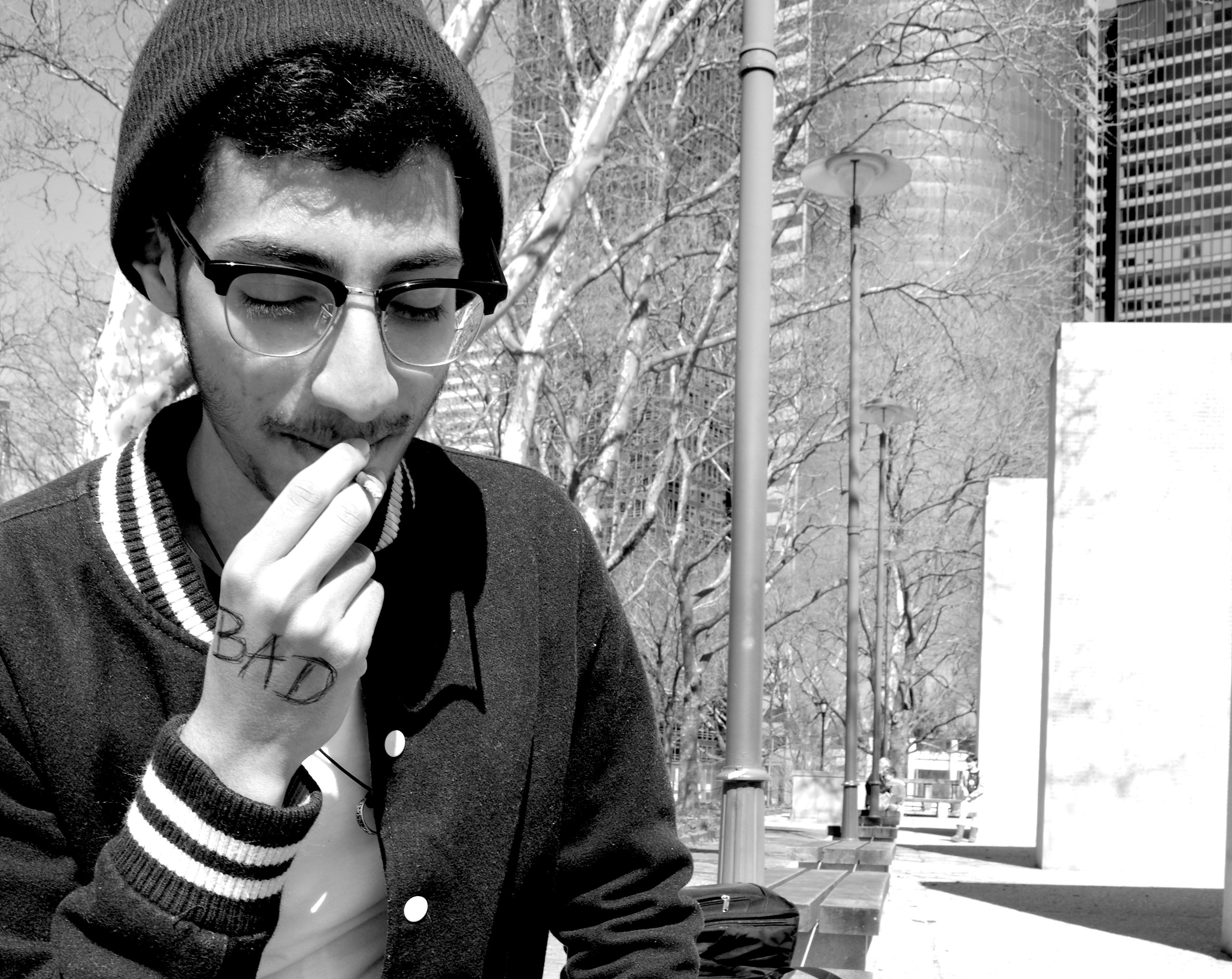
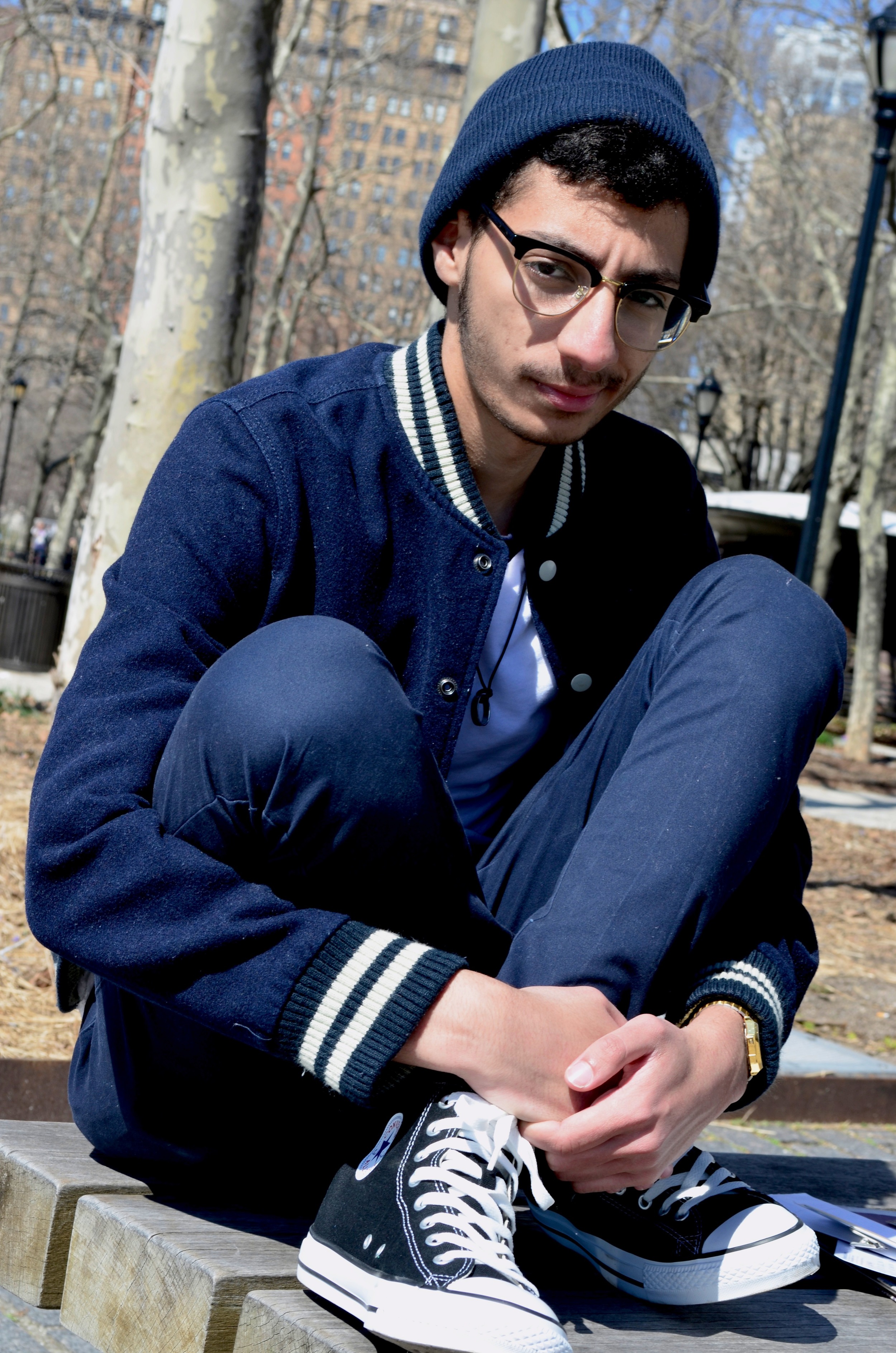
Excerpts From the Interview:
Jazmine: Tell me something about your view on the fundamental nature of reality.
Mohamed: What is the reality of things? The reality of things at the moment are: people are dying, people are getting married, people are hating each other, people are loving each other, people are regretting being born, and the world is in constant motion. I think that’s the reality of things at the moment.
…
Jazmine: Do you believe in a strict, objective reality or that it’s more relative?
Mohamed: I think there are multiple realities. There’s only one true reality, and that’s the harshest one. But there’s, you know, we got this religious reality, a religious institution with a document that’s going to tell us what to do or how we’re going to end our lives, and how we should live our lives. You know, I’m not a religious person but I do believe in a religion, but I don’t let it dictate my life. But in terms of actual reality, it’s harsh, it’s cool, we have to accept it, there will be moments that we’re going to love and think about forever, and there are going to be moments that we dread and also be stuck thinking about forever. That’s just life.
Jazmine: What is this “one true reality” or most real and harsh reality that you refer to?
Mohamed: Well, it’s different for everyone but I guess the most generalized idea of that reality would be that we’re going to grow old, we’re going to see a lot of things and do a lot of things and we’re going to fall in love multiple times, and then…everything’s going to stop.
…
Jazmine: Do you think it’s useful to make that separation between the two, subjective and objective, or do you think we live fundamentally unified?
Mohamed: I certainly feel like they’re unified, but I also think that certain people try to separate them. I know a lot of men are very objective with their emotions. They try to hide their emotions. Let’s say they’re picking up a female, a guy is talking to a girl and she’s talking about all of this emotional stuff. He’ll just play it off like it doesn’t affect him but I feel like it would affect us. Hearing something emotional or something depressing or hearing something that relates to someone that you sort of love will always affect you. But we try to play it off, or most men try to play it off as if it doesn’t affect us. We can see things, we see people getting hit by cars, or people getting beat up in fights, and just walk away and not feel anything. But later on, at some point, it hurts us. Whether it’s physically apparent, we’re crying somewhere alone, or just feel it inside of us. When you see someone getting punched, it’s like you’re getting punched in the heart. You can feel it. And society has made us, or made most men try to play it off, like it doesn’t affect us.
Jazmine: I can see that. The demands of society certainly play a role in what we even let ourselves feel. What’s acceptable and what’s not. As you say, most people separate subject from object, or play along with what society expects, but despite these expectations, how much control or freedom do you feel like you have in life?
Mohamed: Last semester, I did not have any control because I was constantly chained up by societal constraints and listening to my parents and being afraid of the unknown. Being afraid of walking down certain streets because it’s nighttime and that means bad people will come out and terrible things will happen. But at some point I was really hurt by something someone had said. Someone told me that I have to, you know, get over these fears and learn to love myself because apparently I didn’t love myself and I actually think I probably didn’t. I was just being very biased at the time. Being a jerk. But then I realized that I have to get over these fears and I have to, you know, get out and do these things, and that’s how I regained control and realized I have to get up and stop what I was doing, stop being afraid of things. So I just began to approach people and approach life with this mentality that “Hey I’m going to try this” and the worst that could happen is someone will say ”no”, or something may happen to me but it won’t be bad because I’ll have gained experience from it. I’ll learn what not to do or I’ll learn what to do better and I’ll constantly improve and that’s how you’re supposed to live life. That’s how I think you’re supposed to live life. I don’t think that people should be shy and hidden away from things because then we’re just wasting our time here and we don’t have a lot of time.
…
Jazmine: How do you think truth is generated? What does it mean?
Mohamed: I think there is at least one truth in every person’s life. It’s what keeps them sane. I feel like we all have this inner truth within ourselves. We all have to tell at least one true thing about ourselves. And that might be the thing that’s keeping us sane. That reminds us that we live in an actual world where there are consequences and terrible things happen and we need that truth to maintain ourselves. Because if we live our lives as one big lie then we don’t really know who we are. And then you lose yourself and that’s the worst thing that you could ever possibly do.
Jazmine: So, to you, truth gives you a sense of who you are.
Mohamed: I think it does, yeah. I mean I pride myself on telling the truth all the time unless it has something to do with a life or death experience. So I don’t like to lie to people because I wouldn’t want anyone to lie to me. And I try to make that very apparent. I’m going to continue to tell the truth regardless of what people think.
…
"I mean, I believe that we all have morals. So I feel like that dictates 70-80 percent of what we do with ourselves. (whisper) It’s so hard…"
…
Jazmine: Does the idea of infinite possibilities or some sense of ambiguity make you anxious at all?
Mohamed: I’m very open to it. I don’t think it makes me anxious. I like ambiguity because I feel it’s like basically saying “You know what, everyone’s right.” And I think everyone is entitled to be right about something. I don’t think someone should be shut down because of doing…this. Or because a certain something means X or Y. I feel like people should be able to interpret things the way they do because we all have different perspectives, we all have different lives. We all go through different shit and we’re entitled to see things the way that we want to. And ambiguity is essential to happiness. I don’t think we should all accept anything defined because our lives would suck and be boring and terrible and we would not enjoy anything.
…
Jazmine: How do you think your culture, your values, your interpretations have shaped your experience of reality?
Mohamed: I think that my culture has helped me become more in tune with this idea of human rights. In terms of reality, I hate that reality is harsh sometimes and people tend to violate other people’s basic human rights. I think people forget that we’re all humans and we all come from the same place and even though we believe in different things we’re all essentially people. We’re family in some way shape or form. We’re all family and I hate that just because someone’s skin is a different color or believes in something else, people are judged and treated like shit. I know that’s reality but I will never definitively accept that. I will constantly try to advocate for people’s rights and I will constantly try to shift the corruption. I will constantly try to better the world. Because I feel like it’s our job to better the world. And if someone’s not doing their part, I might as well try to do their part as well. I’m very open about it. And it’s an old part of me but I’m very open to dedicating my life to bettering something or bettering people in general.
